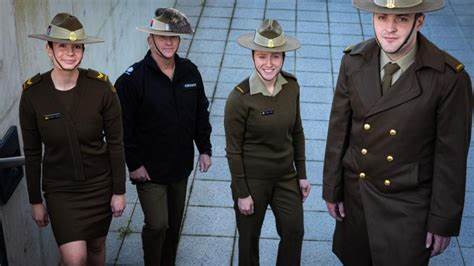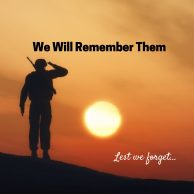
Rekindling Patriotism and Honouring Our Australian Defence Force
ED: My comments about the lack of Patriotism yesterday prompted this article in my inbox this morning.
In recent decades, there’s been a noticeable decline in public patriotism and interactions with members of the Australian Defence Force (ADF), who are increasingly hidden from the public eye. Unlike earlier times, when men and women in uniform were common sights in the community, a generally accepted rule has emerged that discourages ADF personnel from wearing their uniforms in public and speaking openly about their roles. Even on occasions where uniforms are worn, extensive approval processes and cultural taboos often stand in the way.
This trend has created a cultural divide between the public and those who serve. ADF personnel, who once symbolized national pride, may hesitate to appear in uniform publicly, fearing negative reactions or even media scrutiny. A mentality has developed where serving in uniform is perceived as overly boastful, risking scrutiny for appearing “cringe-worthy” or “poseur-like.” Media coverage has occasionally fuelled this perception, casting military service in a less favourable light and deterring the celebration of Australia’s armed forces.
Ironically, this lack of visible patriotism comes at a time when the ADF is operating in increasingly complex and critical scenarios. With intensifying military activities in the Indo-Pacific region, now more than ever, Australia needs to reinforce its military force. The ADF is facing a recruitment crisis, and failure to adequately bridge the gap between the public and the military may be undermining efforts to attract new recruits.
In response to these issues, the federal government’s 2023 Defence Strategic Review (DSR) called for significant reforms, aiming to shorten recruitment times and strengthen the Reserve forces. Recognizing the urgency of the recruitment shortage, the DSR recommended speeding up the enlistment process from months to mere days and expanding initiatives like the Ready Reserve Scheme to bolster military preparedness. By 2040, Australia aims to grow its armed forces to 80,000 personnel, but with current recruitment rates falling behind, the gap in operational strength—currently over 4,300 members below authorized levels—remains a pressing concern.
The path forward lies in fostering a renewed sense of national pride that celebrates the contributions of our military personnel. A more visible military presence and open discussion of ADF service could rekindle community engagement with the armed forces. Supporting those who serve, honouring their commitment, and encouraging Australians to view military service as a worthy pursuit could restore the bond between the public and the military, ensuring the ADF’s growth and readiness in an increasingly uncertain world.
Our “Land Down Under” must rise to the occasion, embracing our history, our military, and the everyday heroes who stand ready to protect the nation.





The lack of recognition and National pride along with poor recruitment, low morale and a host of other shortcomings in today’s ADF, comes down to one thing: leadership, not at the grass root NCO level but in the officer corps, particularly at the top.
The politicians, especially the succession of Ministers of Defence from both political persuasions now seem to be running the ADF at an unprecedented level. There is no question they have a responsibility to set strategy and key policies but they have gone beyond this….and the Admirals, Generals and Air have allied this to happen; they have surrendered control to the politicians.
Changing this is not a simple exercise even if it were practical. The contemporary approach to leadership stated with the introduction of ADFA and the abandonment of the old established and proven officer training regimes that served us well in two world wars and numerous campaigns including Korea and Vietnam. But it’s gone on for so long it’s now part of the culture. Turning back the clock will take decades even if an attempt was made to do it, which I doubt.
It seems to me the top echelons have adopted the woke culture and fear political retribution to the extent they no longer trust their junior ranks. And when things do go wrong they throw the troops under the bus rather than throw their arms around them and defend them to the hilt. Take the behaviour of the former CDF on the Bretton Report: conviction without proof.
Sadly we have gone so far in reverse gear It will only change when we see the number of body bags increases dramatically. How sad is that.
Always those who are Protected will always try to belittle those who defend. Be it the Left Wing, The Activist Uni students with no knowledge of the subject, or the Media with a dull reporting day. I can remember coming home from Vietnam and being asked “What did you achieve?” My answer was, “A clear consensus, satisfaction of doing my job, a better understanding of Political Cowardice.”What more did I want?, Nothing.”
I agree.
Last week I was going through the check-out at our local Bunnings Store at Wagga. As I removed my card to pay, the young cashier noticed my DVA Gold Card and asked what it meant. I simply replied I had served in Vietnam in 1970. He put out his hand, which I took, gave it a shake and he said, “Thank you, Sir”. This kind of thing has happened before but, not on a regular basis. I also thanked him for his gesture. It made my day.
As a proud Vietnam veteran, I agree with this article. It saddens me that this wonderful country is not the lucky country any more.
Why not offer a reasonable incentive. The Govt could offer young people a free university or similar degree on completion of a three year commitment to the Defence Department. Something akin to the Tertiary Education Allowances Scheme that enabled so many of us to further our education after our National Service commitment. It was little more than the dole, but when you graduated you didn’t have any education debt. A bit like the G.I. Bill.